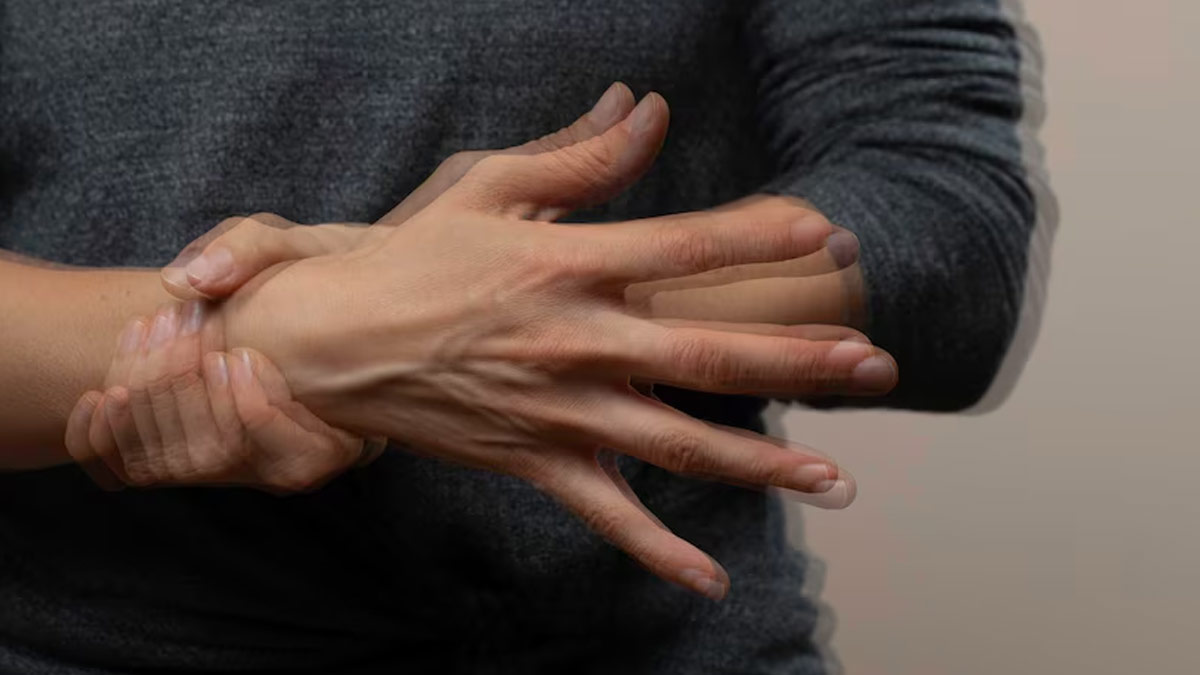
Have you ever noticed your hands trembling when trying to hold a cup of coffee or write a note? Shaky hands, or hand tremors, are more common than you might think and can be caused by a variety of factors. From temporary conditions like anxiety and fatigue to more chronic issues such as essential tremor or Parkinson’s disease, understanding the root cause is crucial for effective management.
Table of Content:-
Dr Sadique Pathan, Neurologist, Sahyadri Super Speciality Hospital in Hadapsar, Pune, in an interaction with OnlyMyHealth team, shares his expertise on this topic.
"Shaky hands, medically known as tremors, can arise from various underlying conditions. A common benign form is physiological tremor, which everyone experiences and is often exacerbated by stress or physical exertion. Essential tremor, a genetic condition, primarily affects the hands but can involve other body parts,” Dr Sadique Pathan explained.
He further added, “Neurological diseases such as Parkinson's disease present characteristic resting tremors. Excess thyroid hormone production in hyperthyroidism, stimulants like caffeine, and alcohol withdrawal can also cause tremors. Additionally, certain medications aimed at treating other conditions might induce tremors as a side effect."
Common Causes of Shaky Hands

Physiological Tremor: This is a normal tremor that everyone experiences, often heightened by stress, fatigue, or physical exertion.
Essential Tremor: A genetic condition that primarily affects the hands but can also impact other body parts.
Parkinson’s Disease: Characterised by resting tremors, this neurological disorder affects movement control.
Hyperthyroidism: Excess thyroid hormone production can lead to tremors.
Substance Use and Withdrawal: Stimulants like caffeine and withdrawal from alcohol can cause tremors.
Medications: Some drugs prescribed for other conditions might induce tremors as a side effect.
Also read: What Are Tremors? Know Everything About The Involuntary Shaking Movements Of Your Body
How To Treat Shaky Hands
Customised treatment plans are essential to managing tremors, focusing on the underlying cause. Elaborating on the same, Dr Pathan said, "Drug-induced tremors can be controlled with medication modifications, while essential tremors are frequently treated with beta-blockers like propranolol. Mild tremors can be lessened by lifestyle changes such as caffeine and stress management methods. Enhancing coordination and muscle strength are two benefits of physical therapy. In severe cases, where tremors significantly impact daily functioning and do not respond to other treatments, deep brain stimulation or thalamotomy are considered."
Medication Adjustments: Modifying or switching medications that cause tremors.
Beta-Blockers: Commonly used for essential tremor; propranolol is a typical example.
Lifestyle Changes: Reducing caffeine intake, managing stress, and maintaining a balanced diet.
Physical Therapy: Helps improve coordination and muscle strength.
Surgical Interventions: In extreme cases, procedures like deep brain stimulation or thalamotomy might be necessary.

For Parkinsonian tremors, carbidopa/levodopa and dopamine agonists are commonly used. Severe cases of essential and Parkinsonian tremors resistant to medication have been successfully treated with stereotactic thalamotomy. Cerebellar tremor treatment varies depending on the underlying cause.
Also read: Why Are Parkinson’s Disease Cases Growing Among Youngsters?
Dr Pathan said, “Tremors can happen when moving or at rest, depending on the reason and how it affects the body.” According to him the causes can also be identified by the mnemonic "HELP, I'M SHAKING":
Hypoglycemia
Essential
Lithium/valproate/other Drugs
Parkinson's disease
Intoxication (e.g., stimulants)
Metabolic/asterixis
Stage fright/emotional causes
Hyperthyroid
Alcohol withdrawal
Kinesogenic
Intention tremor
Normal/physiologic tremor
Genetic causes (Wilson's, Huntington's disease)
Conclusion
Understanding and addressing the root cause of shaky hands can significantly improve one’s quality of life. Whether through lifestyle changes, medication, or more advanced treatments, regaining control and confidence in daily activities is possible.
Also watch this video
How we keep this article up to date:
We work with experts and keep a close eye on the latest in health and wellness. Whenever there is a new research or helpful information, we update our articles with accurate and useful advice.
Current Version